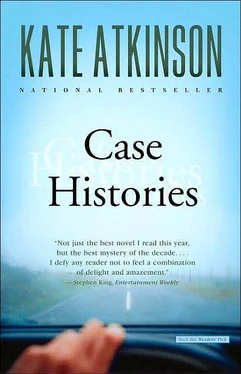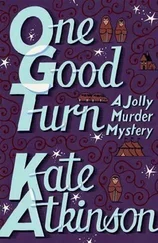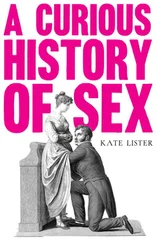The girl said she was eight but she was dressed more like a teenager. But that was how it was nowadays. In the past, children used to be dressed as small adults so there was nothing new in that. When Laura was eight she wore dungarees and jeans and nice dresses for best – "frocks," Valerie would have called them, if she'd been around. White ankle socks, sandals, T-shirts, and shorts. He bought Laura her own clothes and didn't make her wear Jennifer's castoffs. A lot of people thought Theo spoiled his girls, but how could you spoil a child – by neglect, yes, but not by love. You had to give them all the love you could, even though giving that much love could cause you pain and anguish and horror and, in the end, love could destroy you. Because they left, they went to university and husbands, they went to Canada and they went to the grave.
Theo declined a second sweet. "It's polite to offer one to everyone.'" Deborah Arnold said to the girl. Rather reluctantly, Theo thought, the girl slid off her seat and went over to Deborah's desk and without a word offered the tube of sweets to her. Deborah took three. There was something oddly admirable about the woman. Terrifying but admirable.
"What's your job?" the girl asked him.
"I'm retired," Theo said, wondering if she knew what that meant.
"Because you're old," she said, nodding sagely. Theo agreed with her, "Yes, because I'm old."
"My daddy's going to retire," the girl said. "He's going to live in France." Deborah Arnold laughed derisively.
" France?" Theo said. He couldn't imagine Jackson in France somehow. "Have you been to France?"
"Yes, on holiday. Some people ate thrushes."
"Oh my God," Deborah Arnold said. "Neither of you are supposed to be here," she added as if they were jointly responsible for the French dining on innocent songbirds.
"I just wanted a quick chat with Mr. Brodie – to see how things were going," Theo said apologetically. Deborah Arnold seemed extraordinarily busy – typing, filing, and copying like a woman possessed. Did Jackson Brodie really generate this much business? He seemed a little too laid-back to keep an assistant so fully occupied. She'd called herself his assistant; he'd called her his secretary.
"So, Mr. Brodie's out on a case?" Theo asked, to make conversation more than anything. Deborah gave him a pitying look over the top of her spectacles as if she couldn't believe he could be duped into thinking that Jackson actually worked. After five minutes, she said, "He's at the dentist. Again."
"Dad fancies the dentist," the girl said, popping another sweet into an already overloaded mouth. It seemed sad that such little girls knew about "fancying," knew anything at all about sex. Perhaps they didn't, perhaps they just knew the words. The girl, Marlee, did seem very precocious though, more like an eighteen-year-old than an eight-year-old. Not like his eighteen-year-old (because Laura would always be eighteen). Laura had had a freshness about her, an innocence, like a light shining from within. Jackson had never mentioned having a daughter, but then you didn't, did you? Bank managers, bus drivers, they didn't spend their time saying, "I have a daughter, by the way."
"Have you got children?" Marlee asked him.
"Yes," Theo said. "I have a daughter called Jenny. She lives in Canada. She's grown-up." Of course, he felt like he was denying Laura, expected to hear a cock crow every time he made this answer, but people didn't want to hear him say, "Yes, I have two, one alive and well and living in Toronto and one dead and in the earth."
"Grandchildren?" Marlee asked.
"No," Theo said. Jennifer and her husband, Alan – New York, Jewish, avuncular, heart surgeon – had decided not to have children and it had seemed to Theo to be indelicate to ask why. Jennifer had a career, of course. She was an orthopedic consultant, and they had a good life, a nice house in the suburbs, a place on Lake Ontario, a "cottage" as the Torontonians quaintly called their huge lakeshore houses. Theo had gone to stay one summer. The house was surrounded on three sides by trees and at night it was the quietest, darkest place he had ever been, the only illumination coming from the fireflies that danced outside his bedroom window all night long. It was a great place. They had a canoe that they took out on the lake, there were hiking trails through the ancient woods, they had a barbecue every day on their lakeside terrace – it would have been a paradise for kids. Of course, you never missed what you never had. And once you'd had it you missed it all the time. Perhaps Jennifer was being sensible. If she didn't have a child she couldn't lose it.
"Are you sad?"
"No. Yes. A little, sometimes." (A lot, all the time.)
"Have another sweet."
"Thanks."
After ten years Theo had suddenly become impatient. Ten years of garnering evidence, of doggedly accumulating every last scrap of anything, and now he wanted to know. Jackson had removed all his client files, loading up the backseat and the boot of his car with box after box of other people's life histories – their divorces, their house purchases, their last wills and testaments. Had Jackson discerned something yet from all this information, like a soothsayer, like those clairvoyants they brought in, that Theo himself had brought in. Even the police had brought a clairvoyant in, but they hadn't briefed him properly and he had thought they were looking for a body when, of course, they already had one. The clairvoyant said the girl's body was "in a garden, within walking distance of a river," which pretty much narrowed it down to half of Cambridge, if anyone was going to go and look for her, which they weren't. How many girls were out there, unturned by the plow, unseen by the passerby? If only you could lock girls away, in towers, in dungeons, in convents, in their bedrooms, anywhere that would keep them safe.
There was a girl he passed all the time. Sometimes she was on Regent Street, she was often on Sydney Street, and he'd seen her at the Grafton Centre, sitting on an old sheet, a blanket around her shoulders. A "beggar girl." It was like something from history, from the eighteenth century. This morning she was on St. Andrews Street and Theo gave her five pounds, which was all the change he had on him.
The girl looked ill but the dog with her always looked well cared for, a nice glossy black lurcher, still young. The beggar girl had custard-yellow hair, cut raggedly short, and no one ever seemed to give her money, perhaps because she never asked for it, never made eye contact or said something cheery to make people feel good about themselves, good about her being a beggar. Or perhaps because she looked as if she might spend it all on drugs. Theo thought she would probably buy dog food before drugs.
Theo always gave her money but he felt there must be something better he could do – buy her a good meal, find her a room, ask her name, anything, before she slipped through the cracks, but he always felt too shy, too worried that any interest might be misconstrued, that she would turn on him and snarl, "Fuck off, Granddad, you old pervert."
"Does your father know you're here?" Deborah Arnold asked Marlee.
"Mum left him a message on his mobile."
"Well, I have to go out," Deborah said. "I have to catch the post" – this last remark addressed to Theo, who wondered what he was supposed to do about it. "Can you keep an eye on her?" Deborah said, nodding in the direction of Marlee, and Theo wanted to say, "But I'm an almost complete stranger. How do you know I'm not going to do something dreadful to her?" Misinterpreting his hesitation, Deborah said, "It's just for fifteen minutes, or until his nibs comes back." Marlee clambered on his knee and put her arms around his neck, and said, "Please, please, nice man, say yes," and Theo thought, Dear God, hadn't anyone told her to be cautious around strangers? Just because he looked like Father Christmas didn't make him benign, although he was, of course. But Deborah Arnold was out the door and down the stairs before Theo could protest.
Читать дальше

![Дорис Лессинг - Заметки к истории болезни [Notes for a Case History ru/en]](/books/232730/doris-lessing-zametki-k-istorii-bolezni-notes-for-thumb.webp)










